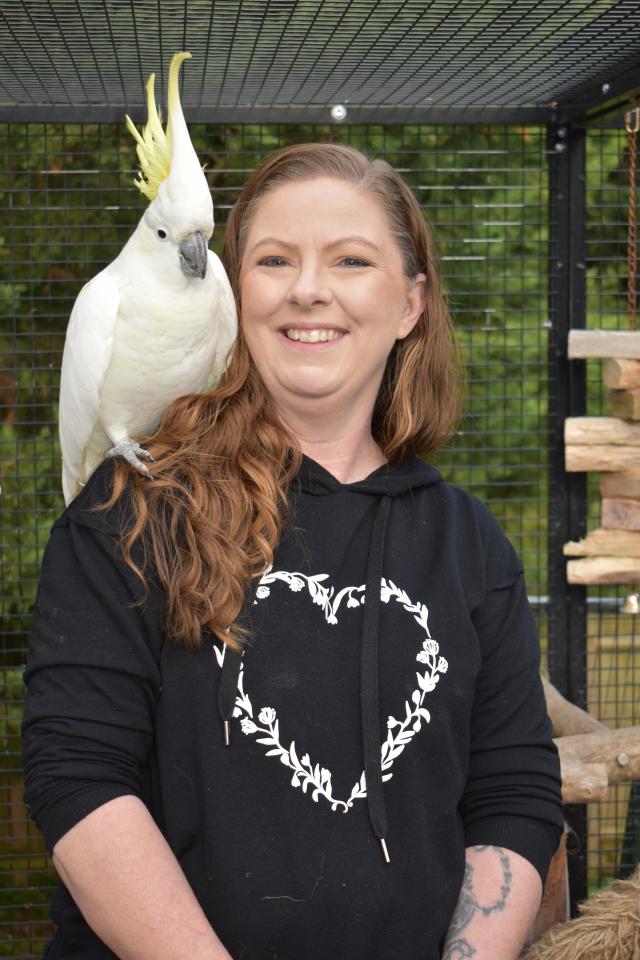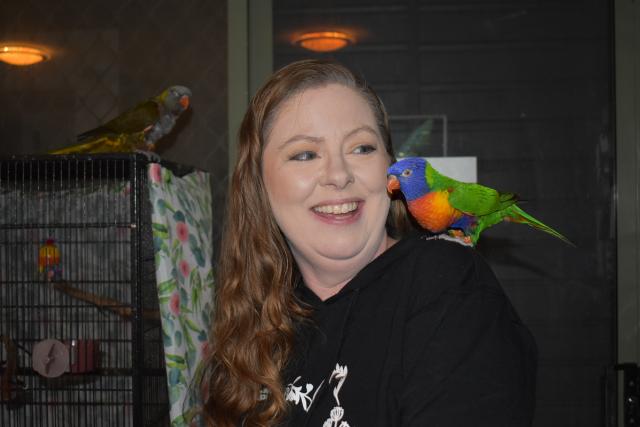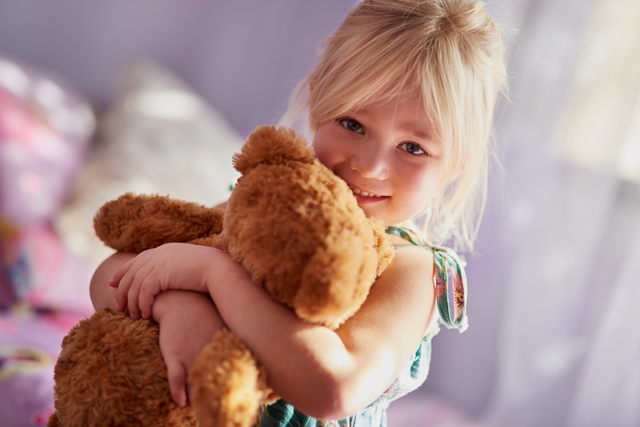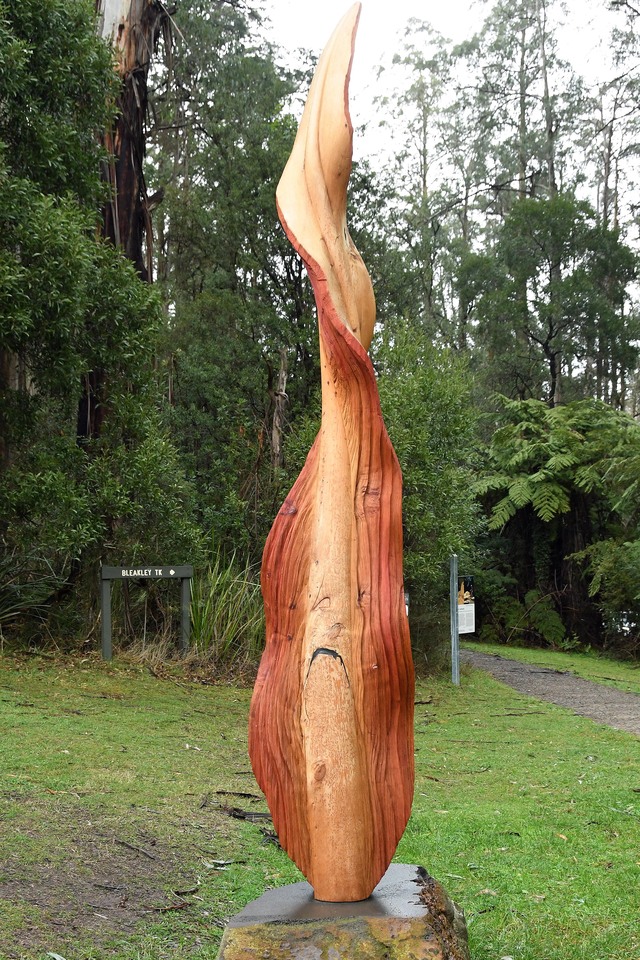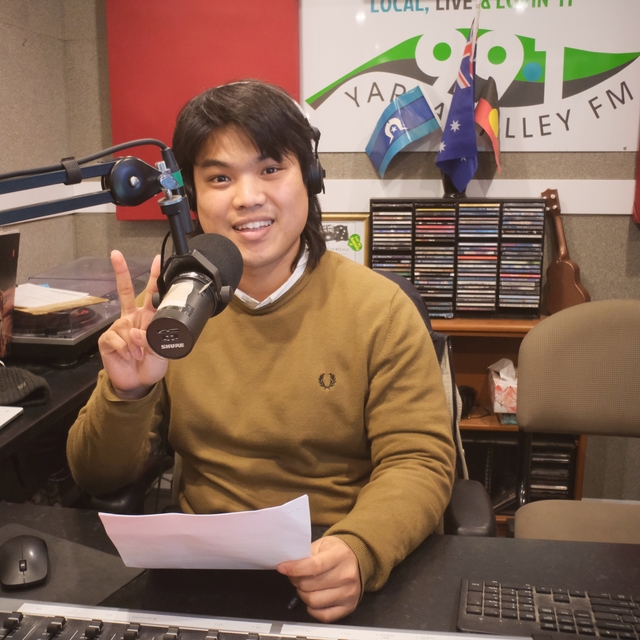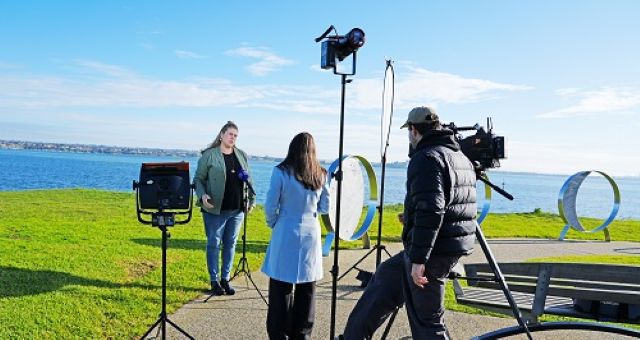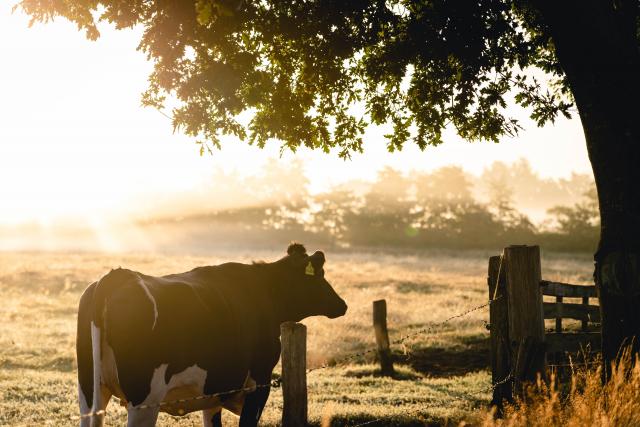Kiwi’s New Life Bird Rescue in Wandin North first began with a cheerful rainbow lorikeet, Kiwi, Lisa Radford came to love.
When Ms Radford was first looking to adopt a pet bird five years ago, she looked everywhere for a rescue but ended up finding very little answers.
She discovered many unwanted pet birds were going to wildlife rescue centres, which were mainly serving as rehabilitation and release organisations, nothing specifically dedicated to birds that were born in the pet trade.
“Most of them weren’t doing vet checks, healthy diets, background checks for adoption.. So watching that process, I decided that I wanted to do something better,” Ms Radford said.
After Kiwi became the first household feathered friend, it wasn’t long before Ms Radford’s home was a refuge for other pet birds.
One by one, more birds were being surrendered to Ms Radford as she became well known among wildlife rescues and veterinary clinics as a place willing to take them in.
Five years later the rescue now has 200 birds in care, with most waiting for to find their forever loving owners.
Cockatoos, galahs, amazon parrots, African grey parrots, budgies, cockatiels, rainbow lorikeets, love bird parrots plus much more are all now being cared for at the Wandin North shelter.
Most have come to the centre from vets across the state who’ve received lost and found birds, or have had birds surrendered to their care. Ms Radford also receives surrenders from owners after building a presence of being a most well-known Victorian bird shelter.
However, as the need has been highlighted, the rescue has been inundated with birds being surrendered and is now unable to accept every bird in need of care.
“Unfortunately, because so many people are finding us to surrender we cannot take everybody’s bird that they want to re-home and we’re having to stick to the ones that need us the most,” Ms Radford said.
These are birds that have been lost with no home to go to, their owners have passed away or neglect and abusive pet ownership cases.
“Unfortunately we’re turning away birds daily… And that goes for every rescue too.”
Taking in birds that need specialised care is something Ms Radford doesn’t take lightly as she works with each bird individually to identify what rehabilitation they need – whether it be addressing severe health conditions from poor diets or behavioural issues from mistreatment.
This is supported by her background in psychology and primary education, a field she worked in when she lived in America before moving to Australia.
“The behaviour therapy definitely helps with all the birds that come in with emotional issues, because I know people don’t realise how emotional birds are but they are…
“A lot of birds come in with a lot of emotional needs. We have had some that tried to starve themselves to death because they’re so depressed, and just a lot of different emotional needs, so we do address all that for each bird.”
Many birds who also come into care are of mature age, as cockatoos can live to 100 years in captivity, galahs can live to 75 years and parrot species can live into the decades.
“The white cockatoo or galah, they come in at anywhere between 20 and 50 years old. It’s hard to find people that want them that are older, which is really sad.”
Ms Radford said both species are ones that stay with her the longest but speaking with pet stores, they are the easiest to get out the door as chicks.
“Everybody wants to get a baby and then in 20 to 30 years it ends up in rescue and then no one wants it, which is sad because these are birds who have been in a family for 20-30 years.
“People should look at the fact that they’re not going to spend 100 years with their bird and then if you get a baby it’s going to end up in a rescue. No matter how much you want to say your children are going to take it, I can tell you, most of them don’t.”
This is why Ms Radford advocates for the adoption of older birds who’ve already been with a family, have trained behaviours and are easy going.
“It’s a more responsible thing to do instead of putting more and more babies into the market.”
Rainbow lorikeets are another who are in the plenty at the rescue, Ms Radford said once they arrive a lot of them stay, believing it may be due to people’s perception of their abundance in the wild.
“I think it’s because people hear them by the hundreds in the trees but they’re already hand raised, they’re in the pet trade so, we’re still responsible for them once we’ve done that.
“There’s so much misconception that if you’re adopting an older bird you’re adopting someone else’s problem…but very rarely is it that we got them because they’re someone else’s problem.”
Ownership is something that shouldn’t be taken lightly, with responsible bird ownership and creating awareness something the shelter and others like it work hard to advocate for.
Ms Radford said birds need social interaction and inclusivity in the family – which is rewarding for the pet and owner.
Many birds that come into care including the Cockatoos, Amazon parrots, African grey parrots, are birds that need high amounts of care.
They require a great deal of affection and although impressive and excitable as a chick, they do grow into mature birds which need owners who’re experienced and attentive.
“We would never give out an Amazon to anyone unless they spent time with it and if they had a behavioural lesson to because they’re not a great family pet… There’s a lot of misinformation going out with them.”
Correct diets are also at the utmost paramount to a healthy bird, with many taken in with poor health conditions such as loss of feathers and fatty tumours which have come from unbalanced and unhealthy diets.
“We get a lot of birds in here that have been on really bad diets and they have massive fatty tumours or they already have liver kidney disease. So the first thing we do is just transform them on to healthy diets.”
Healthy diets that are then expected to be followed by new families to ensure their health and wellbeing in maintained.
“We always tell people when they contact us to read over our website on diet and safety and adoption because on the website, we’ve listed why people rehome, why people get rid of their birds…
“We’ve also listed things like the lifespan and we’ve listed all the care that goes into it, a lot of people don’t realise that most things in your home are going to kill a bird.”
Volunteers also support the rescue, with those interested encouraged to reach out. The roles include feeding, cleaning aviaries, sweeping floors and making toys if the chores have been done.
Any bird lovers interested in learning more about the rescue and others that are around the state should mark Saturday 22 October on the calendar for a large Bird Expo Ms Radford is a part of organising.
The Bird Expo is being held at the Federation Estate in Ringwood and it comes after the inaugural event was held in Mount Evelyn last year.
“People who own birds or are thinking about getting a bird, there’s going to be all sorts of bird safe products for their birds so they can come in and buy foods, toys, bird stands…
“Anything you could think of for your for your bird, or chicken, or pigeon or duck.. we will have products for every single thing.”
There’s plans to make this event much larger with plenty on offer from vendors of arts and crafts, pet accessories, food plus much more.
Everyone’s encouraged to join the bird loving affair and the expo is still on the look out for interested vendors to join and showcase their wares.
“If you make anything that’s related or has a bird theme….bird prints – anything they can think of.”
Classes will be held with bird behaviourist and discussions on different topics such as bird safety and training will also be penciled in.
No live birds will be on display, but attendees who’re looking for a new feathered friend will have time to speak with rescues and book in appointments to visit the sites.
The event will be a fundraiser for the not-for-profit rescues through door donations, however, it’s about creating greater awareness to let people know there are thousands of birds in rescues that need a home.
“It just brings awareness that there’s so many rescues out there and we’re all packed full, so adopting instead of buying.”
AviRescue, G’Day Birdie Sanctuary, Unique Beaks Sanctuary, Melbourne Chicken Save, Melbourne Duck Save, New Life For Animals Rehoming Centre, Bubook Wildlife will all be joining the event.

